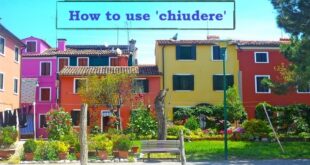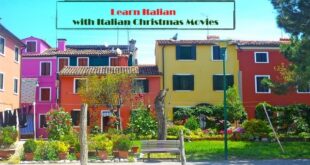Dominican University in River Forest has always blazed new trails in study abroad opportunities for its undergrad students as well as alumni. From London and Florence to China, El Salvador and Poland, Dominican has opened doors, and consequently, the minds and hearts of fortunate travelers, to innovate concepts and lasting experiences.
Recent years have been no exception. Sociology and Criminology Department Chair Dr. Janice Monti has blazed yet another trail, albeit a dustier one, much closer to home: The Delta Blues Tour. The only northern school to offer this kind of civil rights and blues experiential learning activity, Monti has escorted seven groups of students and one alumni group into the deep South.
The five-day trip from Chicago to Memphis takes in the pulse of the Delta by way of the arteries of the Heartland — Highways 61 and 49. Merging a musical emancipation for blues, R&B, soul, gospel and early rock-and-roll with an earthy education of the culture and issues of the South, Monti’s tour is an extrasensory outdoor classroom. “All Americans owe a great debt to African-American music,” explains Monti. “Understanding the music, however, entails an understanding of the economic and social conditions out of which the music came.”
Literal soul-searching fuels the tour, the way the combustibles of the heart and hard knocks ignited the stages of smoky juke joints infused with stinging guitars and hot-handed harmonicas. “The Delta Blues Tour trip is for anyone who grew up with this music, has an interest in civil rights or who is simply adventurous and wants to do something off the beaten path,” says Monti, who is also director of Dominican’s tremendously successful Blues and Spirit Symposium.
It is a profound journey that begins at the National Museum of Civil Rights in Memphis; it is also a sharecroppers journey that includes an eye-opening one-night stay at the Hopson Plantation where, according to the Hopson Preservation Company, over 1 million families were responsible for the plodding labor required to produce over 22 million acres of cotton. “It’s here at Hopson, in the shacks (now converted into rustic lodging) where whole families were raised. I think the meaning of it all is crystallized: the death knell for Jim Crow, the mechanization of cotton picking which eliminated the need for sharecropping and precipitated the exodus of rural blacks into the cities of St. Louis, Chicago and Detroit. Most people don’t realize that 80 percent of Chicago’s African-American population have their roots in the Delta,” stresses Monti.
Joining the professor at the legendary “crossroads” is ethnographer Tad Pierson, owner of American Dream Safari. Since 1989, Person has been illuminating the mysterious deep South for travelers, providing insight into the language and historical perspectives with gritty know-how and familiarity.
Combined with Monti’s extensive academic research, the two are able to provide a veritable feast of soul food for thought that overwhelms the mind and heart via the senses: the wafting smell of hot dinner biscuits, the sight of dilapidated and impoverished towns, the expansive classroom of cotton fields and the text-less touch of the boll of a bygone era, the clues in the lyrics of the blues standards in jukes like the Po’ Monkey: “You may bury my body down by the highway side, So my old evil spirit can catch a Greyhound bus and ride.”
The grave sites of influential bluesman Robert Johnson and the ghost of Memphis Minnie; the ballad-famous Tallahatchie River that shrouded the murdered body of Chicago-born Emmett Till; the stunning silence of the Lorraine Motel where Dr. Martin Luther King Jr. was assassinated; the grandeur of Graceland; the hallowed halls of Sun Records (whose owner Sam Phillips discovered Elvis Presley in 1954) and Stax (The Museum of American Soul Music) where the careers of Otis Redding and Isaac Hayes were launched; the studios of Delta Broadcasting’s KFFA 1360 AM in Helena, Arkansas, home of the longest-running daily radio show in the world, “King Biscuit Time,” hosted by Sonny Payne are all in the tour’s virtual course syllabus.
The students earn three hours of credit and, prior to the trip, are required to attend workshops and prepare assignments based on readings and an extensive set of southern soul, gospel and blues music. To receive full credit and a grade, they must submit a research project at the end of the trip that connects what they have seen and participated in (the experiential part of the course) with what they have read and learned about the legacy of blues, the great migration and the origins of the Civil Rights movement (the more traditional academic content).
Part of the academic background for this trip focuses on race and lynching. One of the first recorded cases of lynching in the south, in Louisiana, involved Sicilian immigrants as the victims. “Clearly, Italians and other immigrants were not considered “white” until the early decades of the 20th century especially so in the Delta, where Italians as well as blacks and Chinese were all engaged in sharecropping and faced very difficult conditions,” explained Professor Monti.
And if he’s not on tour, Monti’s pilgrims culminate at the Full Gospel Tabernacle Church of recording artist Al Green, where there is no shortage of adrenaline, the congregation is on its feet and the choir is unstoppable.
For more information on the tour or the upcoming May 2012 Blues and Spirit Symposium, contact Dr. Janice Monti at Dominican University at 708-524-6771or send an email inquiry to janicemb@dom.edu.
Locally, the West Town Museum of Cultural History at 104 S. 5th Avenue in Maywood has been the repository for archives relating to Black History in Maywood and the western suburbs dating back to 1857. Its archives feature a pictorial exhibit of the Ten-Mile Freedom House, which was the Maywood site of the Underground Railroad in the 1880s for runaway slaves. For more information on touring the Museum, contact Mrs. Northica Stone at 708-343-3554.
 Fra Noi Embrace Your Inner Italian
Fra Noi Embrace Your Inner Italian






